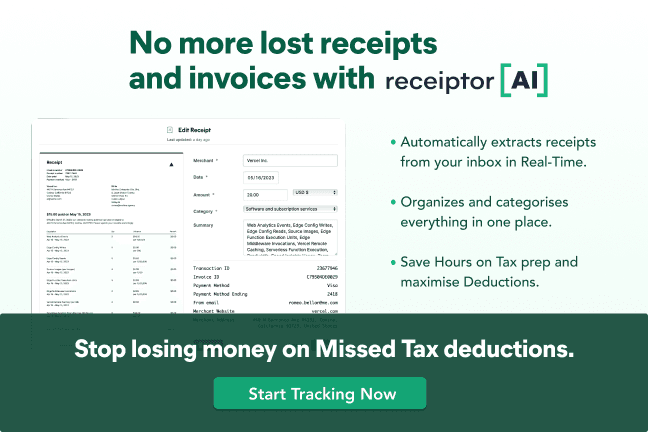Being an independent contractor is a unique and rewarding experience. You have the freedom to choose your projects, set your schedule, and build a career on your own terms. However, along with the perks comes the responsibility of keeping your business organized.
This includes managing key documents that can help you stay on top of your finances, meet tax obligations, and maintain professional credibility. From invoices to tax returns, here’s a rundown of the records you need to keep and why they matter.
Invoices
Invoices are the backbone of any contractor's financial documentation. These are the official records of the work you’ve completed and the money you’ve earned. Keeping accurate invoices is essential not only for tracking your income but also for resolving any potential disputes with clients. They provide a clear paper trail of your earnings, which is particularly useful during tax season.
For best practices, store your digital and physical invoices for at least seven years. This is the minimum period the IRS recommends in case of an audit. If you’ve underreported income or face any tax discrepancies, holding onto these records for up to six years is a safer bet. Organizing them chronologically or by client can make your life much easier when tax time rolls around.
Travel mileage logs
If part of your job involves traveling to meet clients, attend job sites, or pick up supplies, you’re probably racking up miles on your car. Keeping a detailed mileage log is crucial for maximizing your tax deductions. The IRS allows you to claim a certain amount per mile driven for business purposes, but you’ll need records to back it up.
An accurate mileage log should include dates, destinations, purposes of travel, and the total miles driven. This might sound like a hassle, but apps like MileIQ can automate the process and save you a lot of time. Be sure to store these logs for at least three years. If you ever need to explain your travel-related deductions, these logs will be your best defense.
Business cards
Business cards may feel like a relic of the past, but they remain a powerful networking tool. Whether you’re handing them out to potential clients or collecting them at events, these little cards serve as a reminder of connections made and opportunities discussed.
Keep your own stash of business cards fresh and updated with your current contact information and branding. At the same time, hang on to the ones you receive for as long as you can. They can serve as a quick reference when you’re following up with someone or brainstorming collaborations. When they’re no longer useful, feel free to declutter.
Service ads and listings
Your advertisements and online service listings are a vital part of your business identity. Not only do they showcase your skills, but they also help you establish credibility and attract clients. These could include:
- Social media posts,
- Freelance platform profiles, or even
- Local classifieds where you promote your services.
It’s a good idea to keep records of these listings, even if they’re just screenshots or saved drafts. They provide a snapshot of how you’ve marketed yourself over time and can be a useful reference if a client ever questions the scope of work you advertised. Holding onto these for a year or two should suffice, particularly for ongoing or long-term projects.
Project records
Every project you take on as an independent contractor generates a wealth of documents, from contracts and proposals to client emails and final deliverables. These records are your safety net, especially if disputes arise about what was promised or delivered.
To keep things organized, store all project-related files in a dedicated folder—either digitally or physically—so they’re easy to access when needed. Aim to keep these records for at least seven years after a project concludes. For high-stakes or long-term projects, it might be wise to hold onto them even longer.
Tax returns
Tax time is a big deal for independent contractors, and your tax returns are the crown jewel of your financial documentation. These records summarize your income, expenses, and deductions for the year, making them indispensable for both compliance and peace of mind.
The IRS recommends holding onto your tax returns and supporting documents like 1099 forms, receipts, and mileage logs for at least three years. If your taxes involve complexities like bad debt deductions or loss claims, play it safe and store them for seven years. A little extra storage now can save you headaches later.
Professional licenses and insurance certificates
Depending on your field, you may need specific licenses or certifications to operate legally. Pair those with insurance certificates to show clients you’re covered in case of unforeseen issues. Together, these documents signal professionalism and reliability.
Make sure to keep your licenses and insurance policies up to date, renewing them as needed. It’s a good idea to retain expired copies for at least a year, just in case you need them for reference. Keeping these documents organized can open doors to new clients and ensure you’re always prepared.
How to keep track of financial documents as an independent contractor?
Keeping track of financial documents doesn’t have to feel like a constant headache. Receiptor AI is here to make it easier. This smart tool takes the hassle out of managing your records by digitizing everything in one place. Whether it’s an invoice from your email, a receipt sent over WhatsApp, or a document you upload manually, Receiptor AI automatically scans and organizes it for you.
By doing the heavy lifting, Receiptor AI ensures your financial records are safe, searchable, and ready whenever you need them. When tax time or year-end rolls around, you can easily tally up your documents without the last-minute scramble.
Final Thoughts
Staying on top of your documents might not be the most exciting part of being an independent contractor, but it’s one of the most important. Proper documentation isn’t just busywork—it’s your safety net, tax helper, and professional reputation all rolled into one.
So, gather those invoices, update your mileage logs, and give your records a quick tidy. Your future self (and probably your accountant) will thank you! Sign up for a free trial today with Receiptor AI to make your bookkeeping a breeze.

